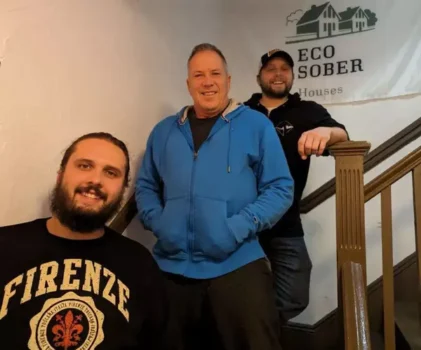
Gallus Medical Detox Centers specialize in safe, effective medical detox. We offer the highest level of skilled care in a calm, comfortable environment. Research finds that participating in a support group improves your chances for long-term recovery.
- There are many more interventions that may be used to help you recover from substance misuse.
- You may find yourself leaning on your trusted support system a lot and breaking ties with those who do not aid you in your recovery.
- Plus, the guilt and shame that often accompany a relapse can be overwhelming and make it even more challenging to get back on track.
- While it may be easy to tell yourself you’ll just have one drink, even a small amount of alcohol can lead you back into the cycle of addiction.
What Percentage of Alcoholics Relapse?
By Lindsay CurtisCurtis is a writer with over 20 years of experience focused on mental health, sexual health, cancer care, and spinal health. You might wake up in the morning feeling tired and not well-rested, with gaps in your memory from the previous night (blackouts). The rebound effects of alcohol can also lead to anxiety and mood changes the following day, a side effect termed “hangxiety.” You may feel drowsy and fall asleep faster than usual, but alcohol can disrupt your sleep throughout the night, and you may have frequent awakenings, even if you don’t remember them. You may have heard about quick-fix methods that help you sober up faster than average.
Warning Signs of a Relapse

What remains clear is the need for compassion, understanding, and ongoing support as individuals navigate the complex journey of recovery from alcoholism. With the right support and strategies in place, individuals can confidently participate in social events without compromising their sobriety and can stay sober even without AA, for example. At the core of this debate is the acknowledgment that recovery from alcoholism requires a highly individualized approach. Environmental factors, such as family history, peer pressure, and stress, can also contribute to a person’s risk of developing AUD.
Inpatient or Residential Treatment
Many people equate drinking with relaxing and having fun, ignoring the potential dangers. Alcohol is so socially acceptable that most people rarely think of how powerful a temptation it can be for those recovering from a substance use disorder. The main similarity between these two alcohol uses is the difficulty in saying “no” to a drink at any time. If you https://ecosoberhouse.com/ or a loved one finds any of the points above relatable to day-to-day life, remember that you are not alone, and that finding the proper diagnosis is the first step to seeking treatment. Before seeking treatment, knowing the difference between alcohol abuse and addiction is vital. However, the primary difference is the ability to control alcohol consumption.

Getting Through Detox
Not only can medication-assisted treatment help you reset your relationship with alcohol, it’s now as close as your smartphone. Ria Health’s program offers all of the components of medication-assisted treatment through a convenient app. Our members get access to expert medical care, medications for alcoholism, one-on-one support, and tools to measure their progress—all on their own schedule.
- Licensed residential treatment facilities provide 24-hour structured and intensive treatment and care, including safe accommodation and medical assistance.
- Recovery involves coming to terms with the reality of the situation and understanding that a lifestyle of abstinence is the only possible lifestyle for those recovering from Alcohol Use Disorder.
- Be sure to avoid any routines that used to lead you to your unhealthy substance use.
- While this definition may work for people who are not in recovery, it usually has a different meaning for those who are.
Emotional Triggers

In most cases, these individuals feel that they have found a solution to their drinking problem that does not involve complete abstinence. If you or a loved one is showing signs of alcohol relapse, it’s crucial to seek help immediately. At Boardwalk Recovery Center, we understand the challenges drinking again after sobriety of overcoming alcohol addiction and are committed to providing comprehensive support. Our programs are designed to help individuals build a strong foundation for long-term sobriety. Don’t wait—reach out today to learn how we can support you in your journey to an alcohol-free life.

At Genesis Recovery, we are here to answer all your questions regarding alcohol use disorder, the process of recovery, and the slip-ups that come along with it. She began drinking regularly after turning 18 years old, and she realized she had “a problem” in her early 20s. The actress first went to rehab at age 23, a secret she kept from her Pretty Little Liars costars at the time, and she called the decision a “pivotal moment” for her life. This is a short-term approach that allows you to safely detoxify a substance out of your body. Whether you drink beer, wine, or liquor, alcohol quickly enters your bloodstream and reaches your brain within minutes of your first drink. As alcohol reaches your brain, the relaxed, euphoric feeling sets in and you may have fewer inhibitions.
Our IOP and clinical services are specifically designed to help clients combat alcohol addiction and reintegrate into society while avoiding triggers that could lead to relapse. Many people who misuse alcohol or drugs have trouble dealing with anger. If left unchecked, anger can have a negative impact on your health and your lasting sobriety. A therapist can help you learn new coping skills, develop new thinking patterns, and address any co-occurring mental health conditions that may make recovery more difficult. Research shows that if you maintain these types of toxic relationships, your chances of relapsing are greater. To avoid relapse and remain sober, it’s important to develop healthy relationships.
- After medication treatment, nearly 46 percent said that they can now drink normally.
- Over time, and with professional help, you’ll adjust to this new lifestyle and come to enjoy all the benefits that sobriety provides.
- One of the most rewarding ways to preserve your progress is to stay on this path.
- Alcohol “interferes with the brain’s communication pathways, and can affect the way the brain looks and works.
- By focusing on these positive aspects of an alcohol-free life, individuals can remain committed to their recovery journey and experience a greater sense of overall well-being.
- These individuals are sucked back into the vicious cycle of losing control of their actions and desires.
- You may have heard about quick-fix methods that help you sober up faster than average.
Navigating Social Situations Without Alcohol

This progression is marked by increasing tolerance, physical dependence, and the potential for serious health complications, including liver disease, cardiovascular problems, and neurological damage. When we think about a relapse, we tend to think about it as sudden, unexpected, and all at once. In reality, it’s likely a gradual progression for most people, and there are typically three stages of relapse. Relapse is a process that can begin weeks or months before someone drinks. Warren is a Licensed Master Social Worker, who specializes in substance abuse and mental health treatment.
Sobriety From Alcohol
Patients who do not receive additional treatment following detox may have a higher chance of relapse. Recovery offers a chance for people to examine their behaviors and make positive changes in their lives. Financial issues and problems finding and keeping employment can be triggers for relapse. Try to keep your finances in order and keep in mind that big improvements are unlikely to happen overnight.